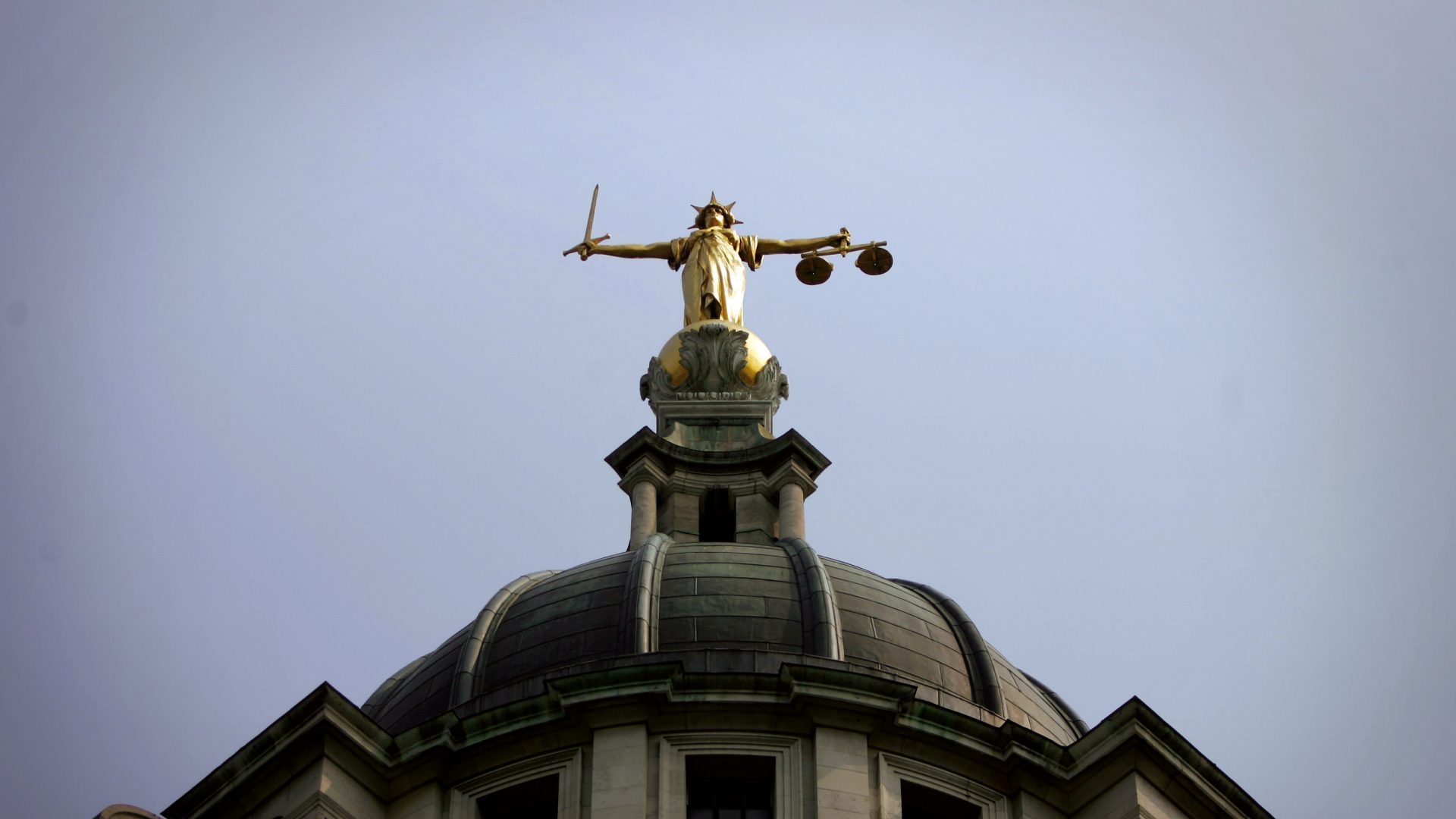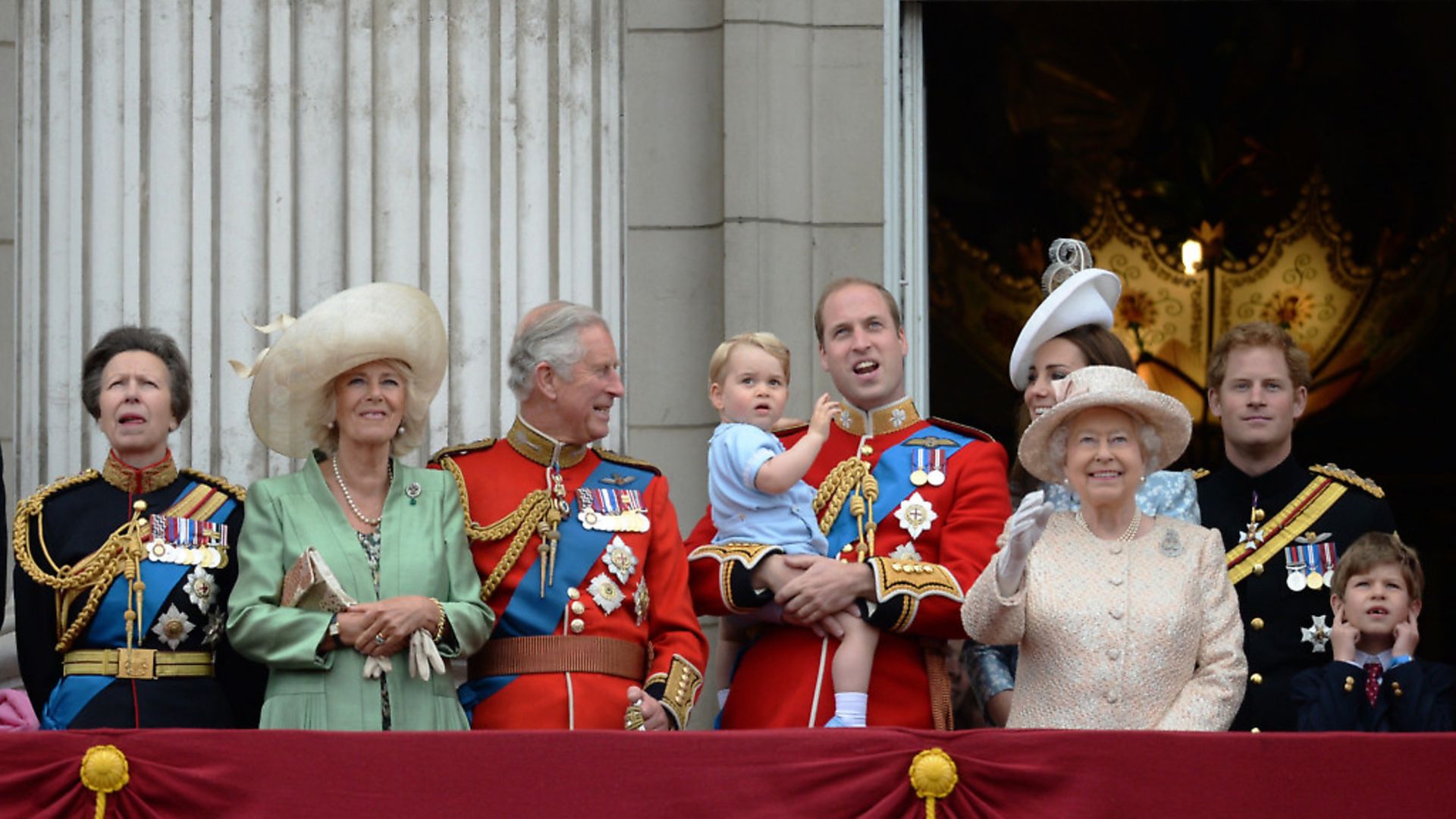All courts look bleak at breakfast time: in the canteen, career criminals and their briefs hunch together over pre-trial fry-ups, while first-time offenders nervously adjust their ties.
Today, however, the canteen’s atmosphere is marred by the beep of police radios. An entire close protection team, in kevlar vests and cradling MP5 submachine guns, has staked out a corner of the room.
In their midst sits a defendant whose unkempt suit and chaotic hairstyle would, if worn by any other offender, be deemed a liability. But it’s Boris Johnson. Unkempt and chaotic have been his trademarks. Now they’re to form the backbone of his defence.
At Johnson’s side sits his barrister, Sir Geoffrey. Red-faced beneath a tattered wig, Sir Geoffrey has done it all: super-injunctions, Russian oligarchs, speeding footballers. But he knows this one will be tough.
No one quite understands why, but once Johnson was deposed in a vote of no confidence, with fresh faces both in Downing Street and the Home Office, the Met reversed its approach to historic Covid lawbreaking. It unleashed a slew of investigations, aided by the full disclosure of evidence collected by the newly-ennobled Baroness Gray of Newry.
With helicopters aloft from both Sky and the BBC, the Met raided Boris Johnson’s home at dawn – the new home secretary posing in police uniform as Boris was marched out in front of the cameras.
The charges? Attending numerous gatherings in breach of Section 7 the Health Protection (Coronavirus Restrictions) (England) Regulations; conspiring with others to circumvent Section 7; perverting the course of justice; and – on the evidence of a renegade Tory whip – blackmail.
The jurors file in, Boris takes the oath, the prosecuting counsel states its case, and the exhibits appear: a hard drive, a smartphone, receipts from the Tesco at Westminster Bridge station and – for the blackmail charge – the secret recording of a conversation between a Whip and a backbencher.
Finally, in an electrifying moment, Boris takes the stand, shirt-tails protruding from his jacket, and states his case: “Nobody told me the parties were against the rules. Others should have warned me but did not. It was others who ordered Downing Street staff to wipe their phones. The whips made menaces against MPs without my knowledge. The entire operation, as Mr Cummings will testify, was as uncontrolled and chaotic as a broken shopping trolley.”
Yes the law was broken, says Sir Geoffrey – but the defendant bears diminished responsibility due to the necessarily disordered, chaotic and random nature of the operation he was running. That was the nature of his genius.
It is, of course, an impossible satire that Boris Johnson could be put on trial.
The likelihood of the criminal justice system ever reaching into the space of an elected government is slim. The acting deputy underlings at the Met, whose job it is to decide what is investigated, have other priorities.
And that is because we have allowed Westminster, Whitehall and local government to fall into a mode of legalised corruption.
In the Greensill case, we saw a CEO given the powers of a ‘Crown Agent’ to procure from other CEOs on the government’s behalf, with only the minimum of oversight.
In the Grenfell Tower case, the councillors who oversaw the lethal refurbishment of the tower block were extensively entertained by property lobbyists.
Between Whitehall departments and the companies they are supposed to regulate, the revolving door whirls faster than ever. Conflict of interests is British politics’ way of life.
If Johnson is, as a result of lying to parliament, forced to resign – even that will not be a matter of rulebreaking. As proven already in the case of Priti Patel, the ministerial code is just a guideline, and the ultimate guardians of it are the politicians it applies to.
If he goes, Johnson will go as a matter of realpolitik, not honour or justice – and will be amply rewarded with book deals, public speaking gigs and newspaper columns, always at lossmaking rates for the companies paying.
How do we break this cycle of failure and betrayal? We need to make constitutional reform about much more than voting systems. We should subject the executive power, actively and comprehensively, to the rule of law.
A culture of booze parties emerged in Downing Street during the lockdown because everyone assumed they were above scrutiny and the law. That’s not a hangover from the deferential past, but an assumption imported from the world of hedge funds, public affairs consultancy and wealth management.
There should be a line-by-line record of all calls, actions, emails, WhatsApp messages, social events and face-to-face conversations for every minister and senior civil servant.
There should be an independent authority, beholden to parliament not Downing Street, with the power to examine this record. Evading it – purposefully or accidentally – should immediately debar the perpetrator from holding government office.
If we had that, we wouldn’t need trials or resignations and trust in politics – currently at an all-time low – might be revived.




